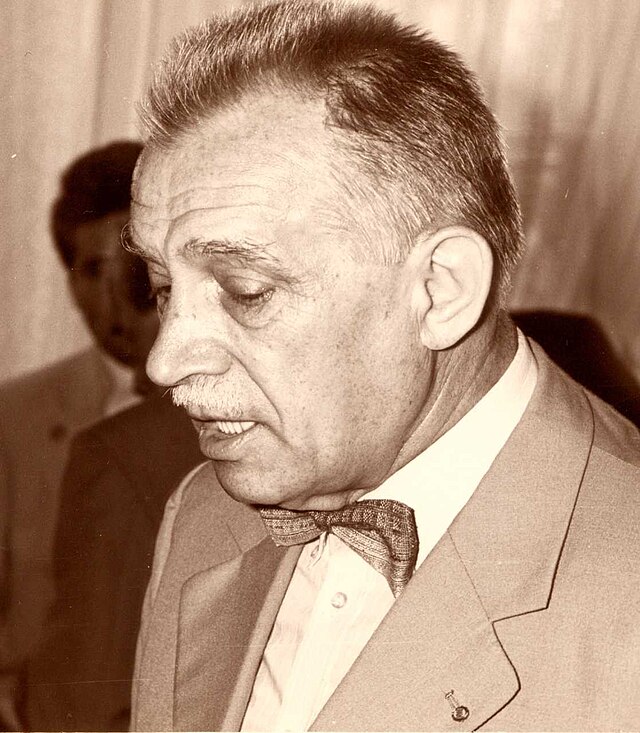In 2023, the Institute of Bioorganic Chemistry of the Polish Academy of Sciences (IBCH PAS) is celebrating a double jubilee the 35th anniversary of its foundation and 30th anniversary of the establishment and affiliation with the Institute of the Poznań Supercomputing and Networking Center (PSNC) .
On this occasion, during the jubilee conference on November 13-15, 2023, we would like to summarize our greatest achievements and, together with representatives of the national and international scientific community, reflect on how modern technologies enable us to uncover the secrets of life at various levels.
The Institute then and now

The IBCH PAS was established on February 6, 1988, although its origins can be traced back to the mid-1950s and two specialized laboratories of the Polish Academy of Sciences operating in Poznan: the Alkaloid Laboratory led by Prof. Jerzy Suszka and the Plant Biochemistry Laboratory led by Prof. Stefan Barbacki. In 1969, both laboratories were merged to form the Department of Stereochemistry of Natural Products, affiliated with the Institute of Organic Chemistry of the Polish Academy of Sciences in Warsaw.
The newly established department was led by Prof. Maciej Wiewiórowski, who also initiated in it a new research programme focused on the chemistry and biology of nucleic acids.

prof. Maciej Wiewiórowski
This particular field has remained the leading research area of the Institute to this day. In 1974, the Department of Stereochemistry of Natural Products was relocated from Collegium Chemicum at Adam Mickiewicz University to a new headquarters at 12/14 Z. Noskowskiego Street.
Six years later, in 1980, it gained independence and changed its name to the Department of Bioorganic Chemistry of the Polish Academy of Sciences. Eight years later, in 1988, the Department was transformed into the Institute of Bioorganic Chemistry, Polish Academy of Sciences. The next 35 years marked a period of dynamic development for the Institute, first under the direction of Prof. Maciej Wiewiórowski (1988), followed by Prof. Andrzej B. Legocki (1988-2003), Prof. Wojciech T. Markiewicz (2003-2011), and Prof. Marek Figlerowicz (2011-2023). Since 1993, the PSNC, led first by Prof. Jan Węglarz (1993-2019), and currently by Dr. Cezary Mazurek (2019-), has been affiliated with the Institute.
Today, IBCH PAN employs over 900 staff members, with approximately half of them working in the biological-chemical division and half in the PSNC
In the biological-chemical division, research is carried out by around 120 scientists supported by approximately 90 technical staff and around 80 doctoral students conducting their work as part of the ICHB PAS Graduate School and the Poznan Doctoral School of Institutes of the Polish Academy of Sciences.
The Scientific Council of the ICHB PAS is authorized to confer doctoral and habilitation degrees in the field of natural sciences in two disciplines: chemical sciences and biological sciences. Within the ICHB PAS there are 32 scientific departments supported by 12 specialized laboratories that provide top-quality research infrastructure.
The Institute remains a leading Polish scientific institution conducting research in the field of natural sciences, which is also reflected by the highest notes obtained from the Polish Ministry of Education and Science during the quadrennial evaluation of the quality of scientific activity (category A+ in biological sciences and chemical sciences, and category A in information and communication technology). The IBCH PAS is also one of the national leaders in the efficiency of obtaining European Union funding, that is grants awarded under EU Framework Programs and structural funds. The Institute has been recognised for its activity in this area by receiving multiple awards, including five times the "Crystal Brussels Sprout Award".
The scientists working at the Institute have received a number of individual state and scientific distinctions, including the most prestigious award from the Foundation for Polish Science, known as the 'Polish Nobel Prize, which was awarded three times, to: Prof. Jan Węglarz, Prof. Mariusz Jaskólski, Prof. Włodzimierz J. Krzyżosiak.
Poznan Supercomputing and Networking Centre (PSNC)

The PSNC is an internationally renowned node of the European research area in the field of information technology infrastructure for science and an important R&D center for information and communication technologies. The PSNC is an important part of the global research and development base, carrying out projects mainly within the successive Framework Programmes of the European Union, but also supporting R&D initiatives with more than a thousand partners from all over the world. Projects developed at the PSNC involve cooperation with almost a thousand entities from more than 60 countries worldwide, on 6 continents.